-

May
11
Interpretive Summary: One-carbon metabolism and related pathways in ruminal and small intestinal epithelium of lactating dairy cows
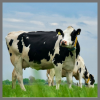
The gastrointestinal tract serves a number of essential functions in the animal and exposure to physiological and environmental stressors can lead to disruption of its barrier function and compromise nutrient absorption. In nonruminants, mechanisms to cope with pro-oxidant and pro-inflammatory stressors are essential for maintaining gut function.
Read more
-

May
11
Interpretive Summary: Multiphasic mixed growth models for turkeys
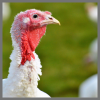
Turkeys have been bred for several purposes over the past decades. We studied growth patterns of turkeys of two genetic lines bred for either meat production or egg production.
Read more
-

May
04
Interpretive Summary: NCCC308: Nutrition and Management of Feedlot Cattle to Optimize Performance, Carcass Value, and Environmental Compatibility – Feature Collection - Nutrition and Management of Finishing Cattle
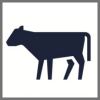
The NCCC308 Multistate Research Coordinating and Information Exchange Group currently consists of members from 18 Agricultural Experiment Stations with a long and strong history in conducting applied finishing cattle nutrition and management research and Extension. The committee has met yearly since 1982, typically at a University or research center, in May.
Read more
-

May
04
Interpretive Summary: Lipid metabolism mRNA expression and cellularity of intramuscular adipocytes within the Longissimus muscle of Angus- and Wagyu-sired cattle fed for a similar days on feed or body weight endpoint
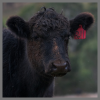
This study investigates intramuscular (IM) adipocyte development in the Longissimus muscle (LM) between Wagyu- and Angus-sired steers compared at a similar age and days on feed (D) or similar body weight (B) endpoint by measuring IM adipocyte cell area and lipid metabolism mRNA expression. Angus-sired steers (AN) were compared with steers from two different Wagyu sires (WA), selected for either growth (G) or marbling (M), to be compared at a similar days on feed (DOF; WA-GD, and WA-MD) in Exp. 1 or body weight (BW; WA-GB, and WA-MB) in Exp. 2.
Read more
-

May
04
Interpretive Summary: Effect of weaning strategy and backgrounding management on growth performance, carcass characteristics, and mRNA expression in the longissimus muscle of beef steers
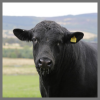
The intramuscular fat depot, also called marbling, is a vital component of beef quality. This study aimed to investigate the effect of the weaning strategy (early vs. normal) and the subsequent backgrounding management on marbling deposition of beef carcasses.
Read more
-

May
04
Interpretive Summary: Guanidinoacetic acid supplementation improves intestinal morphology, mucosal barrier function of broilers subjected to chronic heat stress

With the global warming getting worse, heat stress (HS) has been a serious problem faced by poultry industry. As one of the main target organs, the intestine is easily affected by HS.
Read more
-

May
04
Interpretive Summary: Galyean appreciation club review: a holistic perspective of the societal relevance of beef production and its impacts on climate change

This article aims to provide data-driven information about the relevance of the U.S. beef cattle herd to our society and its greenhouse gas (GHG) contribution to climate change. The Environmental Protection Agency reported that U.S. beef cattle emitted 22.6% of the total agricultural emissions, representing about 2.2% of the total anthropogenic emissions of carbon dioxide equivalent (CO2e).
Read more
-

May
04
Interpretive Summary: Enterococcus faecium from chicken feces improves chicken immune response and alleviates Salmonella infections: a pilot study
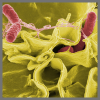
Infectious bacterial contamination in broiler production is a food safety concern and can be transmitted to humans via contaminated meat and derived products. Minimizing bacterial infections using beneficial bacteria called probiotics can reduce the emergence of antibiotic resistance in the livestock industry.
Read more
-

Apr
27
ADD SOY Act introduced
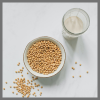
A new bipartisan bill was introduced by Congressman Troy A. Carter, Sr. (D-LA.) and Congresswoman Nancy Mace (R-SC) that would require schools to provide fluid milk substitutes upon request of a student or parent/guardian. The Addressing Digestive Distress in Stomachs of Our Youth (ADD SOY) Act would make soy milk available to children in schools who need an alternative to cow’s milk.
Read more
-

Apr
27
Ag group calls for milk pricing reform

The American Farm Bureau Federation (AFBF) has issued an open letter to United States Department of Agriculture (USDA) Agriculture Secretary Tom Vilsack, calling for milk pricing reform. The letter comes as a response to recent proposals from the International Dairy Foods (IDFA) Association and the Wisconsin Cheese Makers Association (WCMA) to increase allowances.
Read more
-

Apr
27
Animal ag groups call for expanding meat packing capacities
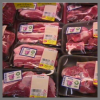
The American Farm Bureau Federation (AFBF), American Sheep Industry Association (ASIA), Livestock Marketing Association (LMA), National Cattlemen's Beef Association (NCBA), National Pork Producers Council, and the United States Cattlemen's Association (USCA) sent a letter to the Senate and House Agriculture Committees. The letter expresses the groups' support of legislation to allow livestock market owners and operators to own or invest in small or regional livestock packing facilities.
Read more
-

Apr
27
Biden vetoes bill to end WOTUS

President Joe Biden has recently vetoed a bill that would overturn the Waters of The United States rule (WOTUS), which has been in effect since March 20th. The vetoed bill had bipartisan support, as well as the support of those in the agricultural industry.
Read more
-

Apr
27
Grants given to farmers affected by tornados

Assistance through the United States Department of Agriculture (USDA) will be available to farmers and ranchers affected by the severe weather and EF-4 tornado in Mississippi last month. USDA’s Food Safety and Inspection Service (FSIS) is also helping affected residents take steps to reduce their risk of foodborne illness as they return to their homes after severe weather.
Read more
-

Apr
27
New bill will support agricultural research

The Advancing Cutting Edge (ACE) Agriculture Act has recently been introduced by U.S. Senator Michael Bennet (D-CO) and U.S. Senator Roger Marshall (R-KS). The ACE Act would support high-risk, high-reward agricultural research and development at the United States Department of Agriculture (USDA).
Read more
-

Apr
27
New Markets for State-Inspected Meat and Poultry Act introduced

A new bipartisan bill titled, New Markets for State-Inspected Meat and Poultry Act, has been introduced to allow meat and poultry products inspected by state Meat and Poultry Inspection (MPI) programs to be sold across state lines. The goal of the bill is to create new markets for farmers and livestock producers across the country while maintaining high inspection standards.
Read more
-

Apr
27
USDA announces climate-smart grants

The United States Department of Agriculture (USDA) has announced climate-smart agriculture, soil health, and nutrient management grants through the Conservation Innovation Grants (CIG) program. USDA will invest $40 million in 31 projects, as well as a $19 million investment in two projects focused on nutrient management funded through the Regional Conservation Partnership Program (RCPP).
Read more
-

Apr
27
USDA, FDIC, and SBA partner to support small farmers
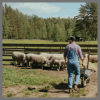
The United States Department of Agriculture (USDA) is partnering with the Small Business Administration (SBA) and the Federal Depository Insurance Corporation (FDIC), to host a series of regional economic development workshops on the “Path to Prosperity”. The workshops will take place in Mississippi, Kentucky, and Georgia, to provide small businesses, including farmers and ranchers, with the resources and tools they need to grow.
Read more
-

Apr
20
Interpretive Summary: Effects of adding ruminal propionate on dry matter intake and glucose metabolism in steers fed a finishing ration
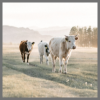
Propionate metabolism by the liver is thought to be a key regulator of appetite and feed intake of animals, including cattle. Previous research has shown that providing propionate to the rumen of cattle decreases feed intake.
Read more
-

Apr
20
Interpretive Summary: An investigation of the effect of folic acid and its delivery routes on broiler chickens’ hatch and growth performance, blood biochemistry, anti-oxidant status, and intestinal morphology
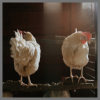
Folic acid (FA) is an essential vitamin with anti-oxidant and growth-promoting properties. Notwithstanding, studies have shown that, like other bioactive substances, its efficacy can be affected by dosage and delivery routes. However, the in ovo delivery of bioactive substances directly to the developing embryo continues to show promising results in poultry production.
Read more
-

Apr
20
Interpretive Summary: Metabolome of purulent materials of liver abscesses from crossbred cattle and Holstein steers fed finishing diets with or without in-feed tylosin
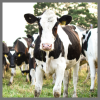
Liver abscesses in feedlot cattle, a consequence of feeding a diet of high-grain and low-roughage, are a mixed bacterial infection with Fusobacterium necrophorum, a ruminal bacterium as the primary causative agent. Cattle with liver abscesses do not exhibit clinical signs and the abscesses are detected only at slaughter.
Read more
 MayInterpretive Summary: One-carbon metabolism and related pathways in ruminal and small intestinal epithelium of lactating dairy cows
MayInterpretive Summary: One-carbon metabolism and related pathways in ruminal and small intestinal epithelium of lactating dairy cows The gastrointestinal tract serves a number of essential functions in the animal and exposure to physiological and environmental stressors can lead to disruption of its barrier function and compromise nutrient absorption. In nonruminants, mechanisms to cope with pro-oxidant and pro-inflammatory stressors are essential for maintaining gut function.
The gastrointestinal tract serves a number of essential functions in the animal and exposure to physiological and environmental stressors can lead to disruption of its barrier function and compromise nutrient absorption. In nonruminants, mechanisms to cope with pro-oxidant and pro-inflammatory stressors are essential for maintaining gut function. MayInterpretive Summary: Multiphasic mixed growth models for turkeys
MayInterpretive Summary: Multiphasic mixed growth models for turkeys Turkeys have been bred for several purposes over the past decades. We studied growth patterns of turkeys of two genetic lines bred for either meat production or egg production.
Turkeys have been bred for several purposes over the past decades. We studied growth patterns of turkeys of two genetic lines bred for either meat production or egg production. MayInterpretive Summary: NCCC308: Nutrition and Management of Feedlot Cattle to Optimize Performance, Carcass Value, and Environmental Compatibility – Feature Collection - Nutrition and Management of Finishing Cattle
MayInterpretive Summary: NCCC308: Nutrition and Management of Feedlot Cattle to Optimize Performance, Carcass Value, and Environmental Compatibility – Feature Collection - Nutrition and Management of Finishing Cattle The NCCC308 Multistate Research Coordinating and Information Exchange Group currently consists of members from 18 Agricultural Experiment Stations with a long and strong history in conducting applied finishing cattle nutrition and management research and Extension. The committee has met yearly since 1982, typically at a University or research center, in May.
The NCCC308 Multistate Research Coordinating and Information Exchange Group currently consists of members from 18 Agricultural Experiment Stations with a long and strong history in conducting applied finishing cattle nutrition and management research and Extension. The committee has met yearly since 1982, typically at a University or research center, in May. MayInterpretive Summary: Lipid metabolism mRNA expression and cellularity of intramuscular adipocytes within the Longissimus muscle of Angus- and Wagyu-sired cattle fed for a similar days on feed or body weight endpoint
MayInterpretive Summary: Lipid metabolism mRNA expression and cellularity of intramuscular adipocytes within the Longissimus muscle of Angus- and Wagyu-sired cattle fed for a similar days on feed or body weight endpoint This study investigates intramuscular (IM) adipocyte development in the Longissimus muscle (LM) between Wagyu- and Angus-sired steers compared at a similar age and days on feed (D) or similar body weight (B) endpoint by measuring IM adipocyte cell area and lipid metabolism mRNA expression. Angus-sired steers (AN) were compared with steers from two different Wagyu sires (WA), selected for either growth (G) or marbling (M), to be compared at a similar days on feed (DOF; WA-GD, and WA-MD) in Exp. 1 or body weight (BW; WA-GB, and WA-MB) in Exp. 2.
This study investigates intramuscular (IM) adipocyte development in the Longissimus muscle (LM) between Wagyu- and Angus-sired steers compared at a similar age and days on feed (D) or similar body weight (B) endpoint by measuring IM adipocyte cell area and lipid metabolism mRNA expression. Angus-sired steers (AN) were compared with steers from two different Wagyu sires (WA), selected for either growth (G) or marbling (M), to be compared at a similar days on feed (DOF; WA-GD, and WA-MD) in Exp. 1 or body weight (BW; WA-GB, and WA-MB) in Exp. 2. MayInterpretive Summary: Effect of weaning strategy and backgrounding management on growth performance, carcass characteristics, and mRNA expression in the longissimus muscle of beef steers
MayInterpretive Summary: Effect of weaning strategy and backgrounding management on growth performance, carcass characteristics, and mRNA expression in the longissimus muscle of beef steers The intramuscular fat depot, also called marbling, is a vital component of beef quality. This study aimed to investigate the effect of the weaning strategy (early vs. normal) and the subsequent backgrounding management on marbling deposition of beef carcasses.
The intramuscular fat depot, also called marbling, is a vital component of beef quality. This study aimed to investigate the effect of the weaning strategy (early vs. normal) and the subsequent backgrounding management on marbling deposition of beef carcasses. MayInterpretive Summary: Guanidinoacetic acid supplementation improves intestinal morphology, mucosal barrier function of broilers subjected to chronic heat stress
MayInterpretive Summary: Guanidinoacetic acid supplementation improves intestinal morphology, mucosal barrier function of broilers subjected to chronic heat stress With the global warming getting worse, heat stress (HS) has been a serious problem faced by poultry industry. As one of the main target organs, the intestine is easily affected by HS.
With the global warming getting worse, heat stress (HS) has been a serious problem faced by poultry industry. As one of the main target organs, the intestine is easily affected by HS. MayInterpretive Summary: Galyean appreciation club review: a holistic perspective of the societal relevance of beef production and its impacts on climate change
MayInterpretive Summary: Galyean appreciation club review: a holistic perspective of the societal relevance of beef production and its impacts on climate change This article aims to provide data-driven information about the relevance of the U.S. beef cattle herd to our society and its greenhouse gas (GHG) contribution to climate change. The Environmental Protection Agency reported that U.S. beef cattle emitted 22.6% of the total agricultural emissions, representing about 2.2% of the total anthropogenic emissions of carbon dioxide equivalent (CO2e).
This article aims to provide data-driven information about the relevance of the U.S. beef cattle herd to our society and its greenhouse gas (GHG) contribution to climate change. The Environmental Protection Agency reported that U.S. beef cattle emitted 22.6% of the total agricultural emissions, representing about 2.2% of the total anthropogenic emissions of carbon dioxide equivalent (CO2e). MayInterpretive Summary: Enterococcus faecium from chicken feces improves chicken immune response and alleviates Salmonella infections: a pilot study
MayInterpretive Summary: Enterococcus faecium from chicken feces improves chicken immune response and alleviates Salmonella infections: a pilot study Infectious bacterial contamination in broiler production is a food safety concern and can be transmitted to humans via contaminated meat and derived products. Minimizing bacterial infections using beneficial bacteria called probiotics can reduce the emergence of antibiotic resistance in the livestock industry.
Infectious bacterial contamination in broiler production is a food safety concern and can be transmitted to humans via contaminated meat and derived products. Minimizing bacterial infections using beneficial bacteria called probiotics can reduce the emergence of antibiotic resistance in the livestock industry. AprADD SOY Act introduced
AprADD SOY Act introduced A new bipartisan bill was introduced by Congressman Troy A. Carter, Sr. (D-LA.) and Congresswoman Nancy Mace (R-SC) that would require schools to provide fluid milk substitutes upon request of a student or parent/guardian. The Addressing Digestive Distress in Stomachs of Our Youth (ADD SOY) Act would make soy milk available to children in schools who need an alternative to cow’s milk.
A new bipartisan bill was introduced by Congressman Troy A. Carter, Sr. (D-LA.) and Congresswoman Nancy Mace (R-SC) that would require schools to provide fluid milk substitutes upon request of a student or parent/guardian. The Addressing Digestive Distress in Stomachs of Our Youth (ADD SOY) Act would make soy milk available to children in schools who need an alternative to cow’s milk. AprAg group calls for milk pricing reform
AprAg group calls for milk pricing reform The American Farm Bureau Federation (AFBF) has issued an open letter to United States Department of Agriculture (USDA) Agriculture Secretary Tom Vilsack, calling for milk pricing reform. The letter comes as a response to recent proposals from the International Dairy Foods (IDFA) Association and the Wisconsin Cheese Makers Association (WCMA) to increase allowances.
The American Farm Bureau Federation (AFBF) has issued an open letter to United States Department of Agriculture (USDA) Agriculture Secretary Tom Vilsack, calling for milk pricing reform. The letter comes as a response to recent proposals from the International Dairy Foods (IDFA) Association and the Wisconsin Cheese Makers Association (WCMA) to increase allowances. AprAnimal ag groups call for expanding meat packing capacities
AprAnimal ag groups call for expanding meat packing capacities The American Farm Bureau Federation (AFBF), American Sheep Industry Association (ASIA), Livestock Marketing Association (LMA), National Cattlemen's Beef Association (NCBA), National Pork Producers Council, and the United States Cattlemen's Association (USCA) sent a letter to the Senate and House Agriculture Committees. The letter expresses the groups' support of legislation to allow livestock market owners and operators to own or invest in small or regional livestock packing facilities.
The American Farm Bureau Federation (AFBF), American Sheep Industry Association (ASIA), Livestock Marketing Association (LMA), National Cattlemen's Beef Association (NCBA), National Pork Producers Council, and the United States Cattlemen's Association (USCA) sent a letter to the Senate and House Agriculture Committees. The letter expresses the groups' support of legislation to allow livestock market owners and operators to own or invest in small or regional livestock packing facilities. AprBiden vetoes bill to end WOTUS
AprBiden vetoes bill to end WOTUS President Joe Biden has recently vetoed a bill that would overturn the Waters of The United States rule (WOTUS), which has been in effect since March 20th. The vetoed bill had bipartisan support, as well as the support of those in the agricultural industry.
President Joe Biden has recently vetoed a bill that would overturn the Waters of The United States rule (WOTUS), which has been in effect since March 20th. The vetoed bill had bipartisan support, as well as the support of those in the agricultural industry. AprGrants given to farmers affected by tornados
AprGrants given to farmers affected by tornados Assistance through the United States Department of Agriculture (USDA) will be available to farmers and ranchers affected by the severe weather and EF-4 tornado in Mississippi last month. USDA’s Food Safety and Inspection Service (FSIS) is also helping affected residents take steps to reduce their risk of foodborne illness as they return to their homes after severe weather.
Assistance through the United States Department of Agriculture (USDA) will be available to farmers and ranchers affected by the severe weather and EF-4 tornado in Mississippi last month. USDA’s Food Safety and Inspection Service (FSIS) is also helping affected residents take steps to reduce their risk of foodborne illness as they return to their homes after severe weather. AprNew bill will support agricultural research
AprNew bill will support agricultural research The Advancing Cutting Edge (ACE) Agriculture Act has recently been introduced by U.S. Senator Michael Bennet (D-CO) and U.S. Senator Roger Marshall (R-KS). The ACE Act would support high-risk, high-reward agricultural research and development at the United States Department of Agriculture (USDA).
The Advancing Cutting Edge (ACE) Agriculture Act has recently been introduced by U.S. Senator Michael Bennet (D-CO) and U.S. Senator Roger Marshall (R-KS). The ACE Act would support high-risk, high-reward agricultural research and development at the United States Department of Agriculture (USDA). AprNew Markets for State-Inspected Meat and Poultry Act introduced
AprNew Markets for State-Inspected Meat and Poultry Act introduced A new bipartisan bill titled, New Markets for State-Inspected Meat and Poultry Act, has been introduced to allow meat and poultry products inspected by state Meat and Poultry Inspection (MPI) programs to be sold across state lines. The goal of the bill is to create new markets for farmers and livestock producers across the country while maintaining high inspection standards.
A new bipartisan bill titled, New Markets for State-Inspected Meat and Poultry Act, has been introduced to allow meat and poultry products inspected by state Meat and Poultry Inspection (MPI) programs to be sold across state lines. The goal of the bill is to create new markets for farmers and livestock producers across the country while maintaining high inspection standards. AprUSDA announces climate-smart grants
AprUSDA announces climate-smart grants The United States Department of Agriculture (USDA) has announced climate-smart agriculture, soil health, and nutrient management grants through the Conservation Innovation Grants (CIG) program. USDA will invest $40 million in 31 projects, as well as a $19 million investment in two projects focused on nutrient management funded through the Regional Conservation Partnership Program (RCPP).
The United States Department of Agriculture (USDA) has announced climate-smart agriculture, soil health, and nutrient management grants through the Conservation Innovation Grants (CIG) program. USDA will invest $40 million in 31 projects, as well as a $19 million investment in two projects focused on nutrient management funded through the Regional Conservation Partnership Program (RCPP). AprUSDA, FDIC, and SBA partner to support small farmers
AprUSDA, FDIC, and SBA partner to support small farmers The United States Department of Agriculture (USDA) is partnering with the Small Business Administration (SBA) and the Federal Depository Insurance Corporation (FDIC), to host a series of regional economic development workshops on the “Path to Prosperity”. The workshops will take place in Mississippi, Kentucky, and Georgia, to provide small businesses, including farmers and ranchers, with the resources and tools they need to grow.
The United States Department of Agriculture (USDA) is partnering with the Small Business Administration (SBA) and the Federal Depository Insurance Corporation (FDIC), to host a series of regional economic development workshops on the “Path to Prosperity”. The workshops will take place in Mississippi, Kentucky, and Georgia, to provide small businesses, including farmers and ranchers, with the resources and tools they need to grow. AprInterpretive Summary: Effects of adding ruminal propionate on dry matter intake and glucose metabolism in steers fed a finishing ration
AprInterpretive Summary: Effects of adding ruminal propionate on dry matter intake and glucose metabolism in steers fed a finishing ration Propionate metabolism by the liver is thought to be a key regulator of appetite and feed intake of animals, including cattle. Previous research has shown that providing propionate to the rumen of cattle decreases feed intake.
Propionate metabolism by the liver is thought to be a key regulator of appetite and feed intake of animals, including cattle. Previous research has shown that providing propionate to the rumen of cattle decreases feed intake. AprInterpretive Summary: An investigation of the effect of folic acid and its delivery routes on broiler chickens’ hatch and growth performance, blood biochemistry, anti-oxidant status, and intestinal morphology
AprInterpretive Summary: An investigation of the effect of folic acid and its delivery routes on broiler chickens’ hatch and growth performance, blood biochemistry, anti-oxidant status, and intestinal morphology Folic acid (FA) is an essential vitamin with anti-oxidant and growth-promoting properties. Notwithstanding, studies have shown that, like other bioactive substances, its efficacy can be affected by dosage and delivery routes. However, the in ovo delivery of bioactive substances directly to the developing embryo continues to show promising results in poultry production.
Folic acid (FA) is an essential vitamin with anti-oxidant and growth-promoting properties. Notwithstanding, studies have shown that, like other bioactive substances, its efficacy can be affected by dosage and delivery routes. However, the in ovo delivery of bioactive substances directly to the developing embryo continues to show promising results in poultry production. AprInterpretive Summary: Metabolome of purulent materials of liver abscesses from crossbred cattle and Holstein steers fed finishing diets with or without in-feed tylosin
AprInterpretive Summary: Metabolome of purulent materials of liver abscesses from crossbred cattle and Holstein steers fed finishing diets with or without in-feed tylosin Liver abscesses in feedlot cattle, a consequence of feeding a diet of high-grain and low-roughage, are a mixed bacterial infection with Fusobacterium necrophorum, a ruminal bacterium as the primary causative agent. Cattle with liver abscesses do not exhibit clinical signs and the abscesses are detected only at slaughter.
Liver abscesses in feedlot cattle, a consequence of feeding a diet of high-grain and low-roughage, are a mixed bacterial infection with Fusobacterium necrophorum, a ruminal bacterium as the primary causative agent. Cattle with liver abscesses do not exhibit clinical signs and the abscesses are detected only at slaughter.



